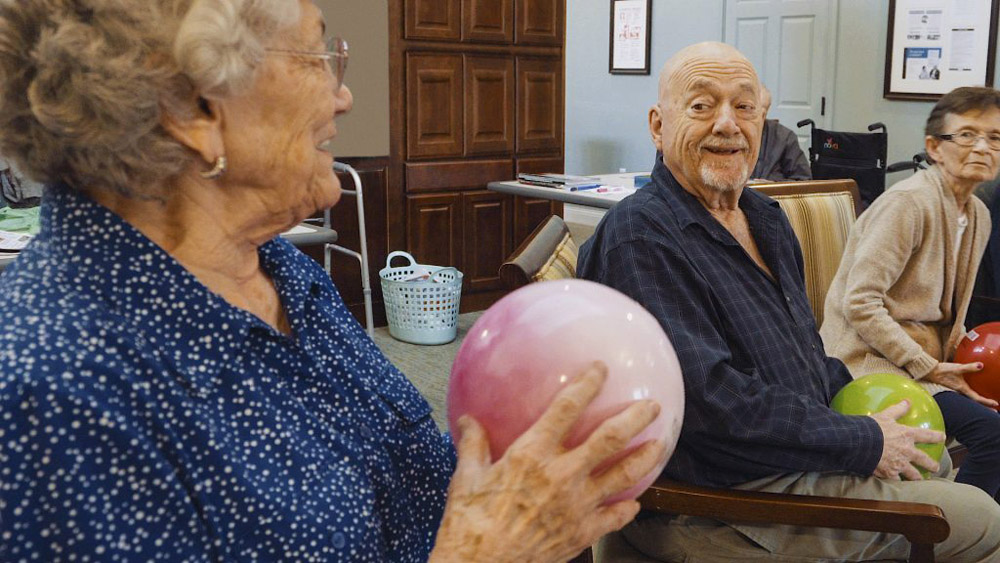Memory Care Explained: Recognizing Services That Make a Difference
Memory care solutions have actually become a vital source for individuals coming to grips with cognitive impairments, such as Alzheimer's and mental deterioration. These customized programs not only provide secure settings and experienced team yet additionally include tailored tasks that improve cognitive engagement and emotional wellness. Recognizing the selection of therapies and support group readily available is essential for households steering via these complex choices. As we check out the various elements that add to effective memory care, it ends up being clear that the appropriate options can considerably influence the quality of life for both residents and their households.
Overview of Memory Care

Specialized Therapies Available
Several specialized therapies are offered within memory care services, each tailored to attend to the distinct obstacles dealt with by people with cognitive impairments. These therapies aim to boost cognitive functioning, promote emotional well-being, and improve general top quality of life.One widely pre-owned technique is memory treatment, which encourages people to mirror on past experiences through pictures, music, and acquainted things. This approach can stimulate memories, promote discussion, and foster links with caretakers and peers.Another efficient treatment is cognitive stimulation therapy (CST), developed to involve people in mental workouts that promote cognitive skills and social interaction. CST sessions commonly include challenges, quizzes, and conversations, giving organized cognitive difficulties that aid maintain psychological agility.Art and songs therapy are additionally integral elements of memory care. These therapies leverage innovative expression to assist in communication and emotional release, commonly benefiting those who may fight with verbal communication.Additionally, animal-assisted treatment has actually gotten recognition for its capability to reduce stress and anxiety and promote social communication with the visibility of therapy animals. Collectively, these specialized therapies play an important function in enhancing the lives of individuals with memory impairment, cultivating an encouraging and improving atmosphere.
Engaging Activities and Programs
Engaging activities and programs play a vital duty in memory care services, offering people boosting chances that promote cognitive engagement and social communication. Customized to the special demands of locals, these tasks include arts and crafts, songs treatment, memory video games, and physical workouts. Such programs are developed not only to boost cognitive feature however additionally to promote a feeling of success and community (Alzheimer’s Care Charlotte).Social interaction is a vital part of memory care, as it helps in reducing sensations of seclusion and anxiety typically experienced by individuals with memory disabilities. Group tasks urge communication and collaboration, creating an atmosphere where locals can share experiences and develop read this article relationships.Moreover, involving tasks can be adjusted to differing levels of cognitive capacity, guaranteeing that all individuals can take part meaningfully. Employee learnt memory care help with these programs, giving support and support customized to each individual's capabilities.Incorporating familiar routines and passions into these activities can further improve their efficiency, helping citizens connect with their past and maintain a feeling of identification. Generally, a well-rounded range of engaging activities enhances the lives of those in memory care, contributing to their total well-being and quality of life
Significance of Family Support

Picking the Right Facility
Selecting the right memory care center is a vital decision that requires mindful factor to consider of numerous factors. Initially, evaluate the degree of care your enjoyed one needs. Facilities vary in their offerings, from basic assistance to specialized memory care programs tailored for conditions such as Alzheimer's and various other dementias.Next, take into consideration the atmosphere of the center. A welcoming, secure, and comfy ambience can significantly impact a citizen's wellness. Browse through potential centers to review their tidiness, safety features, and overall atmosphere. Observe personnel interactions with homeowners, as caring and trained caretakers are essential to top quality care.Additionally, inquire concerning the center's staffing ratios and credentials. Memory Care Charlotte. Sufficient staffing guarantees personalized focus and timely actions to locals' requirements. Evaluate the accessibility of activities and programs that advertise engagement, socialization, and cognitive excitement, as these are vital for maintaining lifestyle
Often Asked Questions
What Is the Cost of Memory Care Services?
The expense of memory care services differs considerably based upon place, center type, and level of care required. Typically, family members can expect to pay between $4,000 and $7,000 monthly - Memory Care. These expenditures usually include housing, dishes, personal care, and specialized support for memory-related conditions. It is essential for families to research study alternatives extensively and take into consideration financial assistance programs, insurance policy protection, and prospective lasting care preparing to manage these expenses successfully

How Is Team Trained to Deal With Memory Care Homeowners?
Personnel training for memory care homeowners is thorough and specialized, concentrating on recognizing the one-of-a-kind demands of people with cognitive impairments. Programs usually include education on dementia-related conditions, interaction techniques, behavior administration, and psychological support strategies. Training likewise stresses the value of developing a safe and stimulating atmosphere. Continuous education and learning and hands-on experience assurance staff are geared up to give compassionate care, cultivating dignity and regard for locals while promoting their overall health.
Are Memory Care Facilities Certified and Controlled?
Yes, memory care centers go through licensing and governing oversight, which differs by state - Dementia Care. These regulations assure that centers fulfill specific standards connected to security, care high quality, staffing, and resident legal rights. Commonly, state wellness divisions or regulative bodies perform inspections and keep an eye on compliance to protect homeowners with memory disabilities. Potential homeowners and family members need to validate a facility's licensing status and regulatory history to determine appropriate care and assistance solutions are offered
Can Locals Personalize Their Living Spaces?
Yes, homeowners in memory care centers often have the chance to personalize their living rooms. This customization may include choosing decorations, arranging furnishings, or displaying personal valuables, which can help create a sense of knowledge and convenience. Such personalization is encouraged to advertise uniqueness and boost the emotional health of homeowners. However, any kind of alterations are usually subject to facility guidelines to guarantee security and preserve a supportive environment for all residents.
What Are the Visiting Hours for Family Members?
Checking out hours for family participants are normally developed to assure that homeowners obtain proper care while maintaining meaningful connections with their loved ones. These hours may differ by center, but generally, visitation is allowed during designated times, commonly in the mid-day and very early night. Dementia Care. It is suggested for relative to confirm details going to hours with the center to assure compliance with any kind of plans in area, in addition to to improve the total experience for both citizens and site visitors